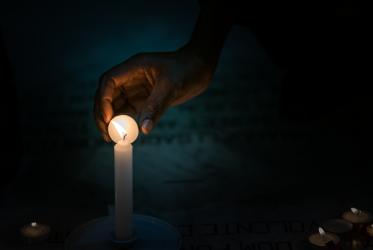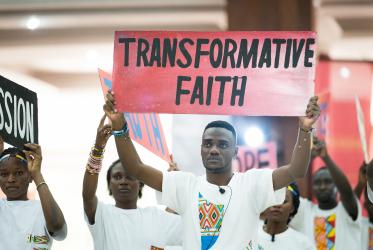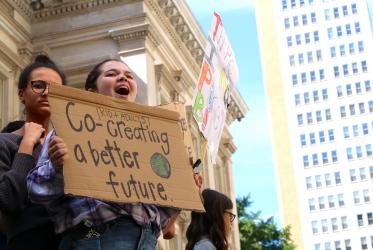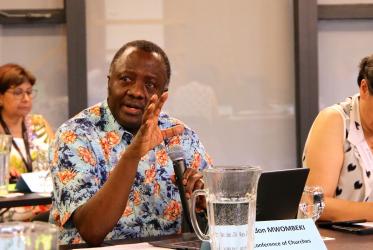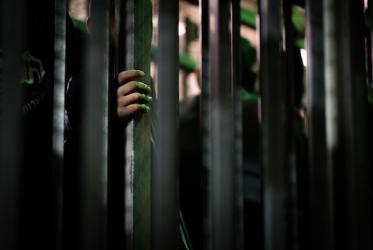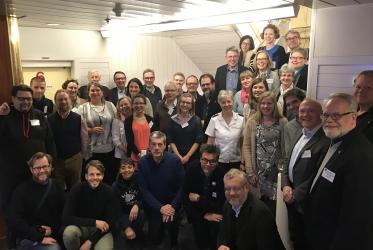Displaying 141 - 160 of 686
“Standing Together in a World Divided” speaks to global survival
21 November 2019
WCC general secretary: Iraqi people’s voices must be heard
05 November 2019
Churches in southern Africa stand against violence, xenophobia
10 October 2019
WCC joins global climate strike with throngs of young people
21 September 2019
Religions for Peace calls for "shared well-being”
26 August 2019
